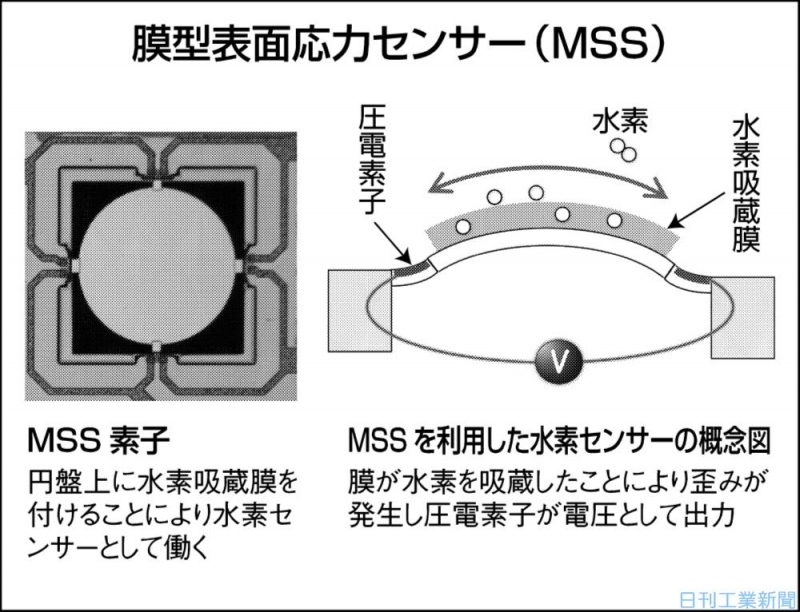

NIMS: Advanced Hydrogen Sensing: Membrane Surface Stress Sensor (MSS)
-Realization of carbon neutrality-
National Institute for Materials Science (NIMS):
The Materials Organization is researching hydrogen observation technology.
One of them is hydrogen sensing technology.
Hydrogen sensing technology:
The hydrogen sensing technology being developed by the National Institute for Materials Science (NIMS) is a film-type surface stress sensor (MSS).
Membrane surface stress sensor (MSS):
MSS is an excellent device for sensing minute stresses.
We use MSS,
When the hydrogen storage material stores hydrogen,
If you think of the resulting strain as stress,
Can be used as a hydrogen sensor (see figure)
Resource saving of hydrogen storage materials:
If high-sensitivity hydrogen sensing becomes possible, the amount of sensitive membrane used can be reduced.
It is also expected to save resources for hydrogen storage materials containing precious metals.
Importance of hydrogen-related technology:
Hydrogen is the smallest element and easily penetrates into solids such as metals.
Taking advantage of its properties, it is used as a hydrogen filter and hydrogen storage material.
on the other hand,
Hydrogen embrittlement, which makes metals such as structural materials brittle, sometimes causes major accidents.
High-performance stress meter:
Advanced knowledge was obtained through the development of highly sensitive MSS.
It is great that we were able to experiment in a wide range of hydrogen concentrations.
MSS is expected to be applied to new sensing technologies such as odor sensors.
From another point of view, it can be regarded as a high-performance stress meter.
Amorphous palladium alloy:
By using an amorphous palladium alloy
Even if you refer to the amount of occlusion,
As an odor sensor
We also found that it was available for all.
New switch
Launch of “MSS Alliance” aiming at industry standard of olfactory sensor
Press release of Kyocera Corporation